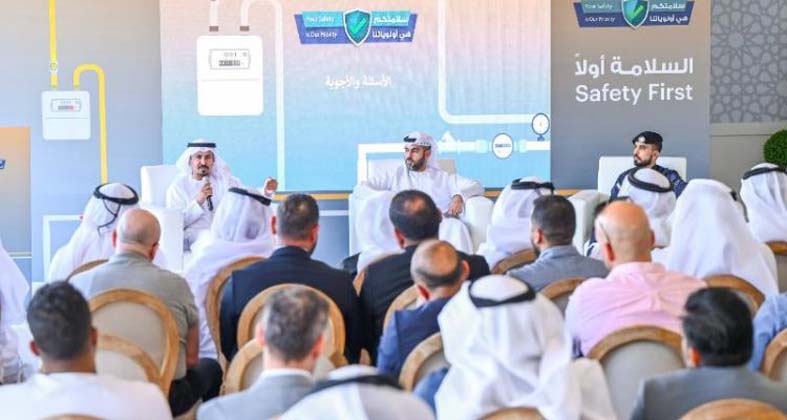Abu Dhabi Gas Safety Committee organised the third forum for owners and investors, held in Al Fares Al Shahem Hall in Al Mushrif, Abu Dhabi
The forum aimed to enhance cooperation and joint efforts between the Gas Safety Committee and the owners of properties, establishments, and buildings to improve the security and safety standards of liquefied petroleum gas systems to ensure the protection of lives and properties.
Dr. Saif Saeed Al Qubaisi, chairman of the Gas Safety Committee and acting director-general for the Regulatory Affairs Sector at the Department of Energy emphasised that the committee has begun reviewing standards and safety of gas supplies, installations, and uses throughout the emirate to prevent gas accidents. He added that expertise houses have been tasked to inspect gas systems in targeted buildings to ensure they meet safety standards.
Al Qubaisi added that the Department of Energy has initiated contracts for gas system repairs in high-risk buildings, which require relocating the main filling line from inside the building to the outside. Earlier this year, the committee issued a circular addressing the safe use of gas cylinders at construction sites, with a view to ensuring a safe working environment and reducing fire incidents
Engineer Abdul Rahman Al-Alawi, health, safety & environment director at the Department of Energy and Gas Safety Committee member mentioned that out of the 2,887 buildings have been inspected so far, gas leaks were stopped in 85 buildings, 221 buildings were identified as high-risk, and 40 buildings are in the repair phase.
Al Alawi highlighted the most common violations detected during inspection campaigns, and stressed the importance of adhering to the issued circulars. This includes not filling the central gas system in any building without first obtaining a certificate of compliance with the building's preventive safety conditions and the prohibition of introducing gas cylinders into buildings equipped with a central gas system.
Engineer Rasheed Al Rashdi, director of the emergency and business continuity department at Abu Dhabi City Municipality highlighted that the main challenges and practices observed in buildings include non-compliance with the Emirate's regulations, failure to obtain occupancy certificates, installing unlicensed partitions and barriers, and failure to obtain Civil Defense compliance certificates and Department of Energy conformity certificates. Other issues include overcrowding and improper use of buildings, lack of security and safety measures, installing unauthorised extensions, and construction of informal housing.






